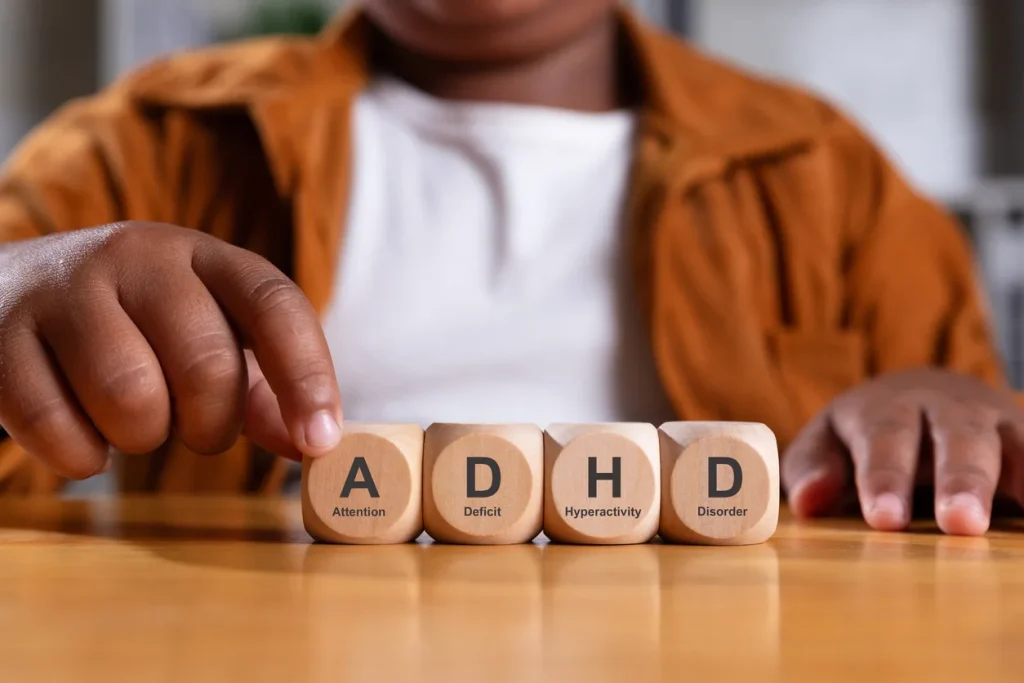Page last updated:
Monday, 21 July 2025
Learn about how ketamine therapy may be used as a treatment for ADHD, examine the latest research, and consider how it might fit into a comprehensive care strategy.
Reviews from

ADHD (Attention Deficit Hyperactivity Disorder) is a common neurodevelopmental condition that typically begins in childhood. However, it can persist into adolescence and adulthood if not managed effectively. The key characteristics of ADHD include:
Traditional treatments usually involve medications such as methylphenidate or dexamfetamine prescriptions alongside counselling. These drugs often help regulate attention and impulse control. But for some people, side effects, limited effectiveness, or concerns about dependency can spur them to seek alternative solutions.
Ketamine Treatment for ADHD stands out for its rapid action and a distinct mechanism of tackling mood regulation, executive function, and focus. Unlike stimulants, ketamine primarily acts on the NMDA receptors in the brain, influencing the glutamate system.
This pathway can be associated with cognitive processes, learning, and memory. By modulating this system, ketamine may offer advantages for some people who haven’t achieved the desired results with traditional medications.

Originally developed as an anaesthetic in the 1960s, ketamine became popular for its fast-acting dissociative properties. Medical professionals often used (and still use) it in both human and veterinary settings. More recently, researchers discovered ketamine’s potential to offer rapid relief in cases of treatment-resistant depression, making it a promising new agent in the mental health field.
Ketamine is not yet approved specifically for ADHD in the UK, but ketamine therapy has shown promise for:
Early clinical observations suggest that ketamine may help improve focus and executive function, potentially offering relief from ADHD’s hallmark challenges. As we learn more about how the way Ketamine impacts us through clinic trials, experiences such as James’s may become more common.
The full benefits of ketamine therapy are still being discovered, but as we learn more through clinical trials, the evidence is starting to build that it will have a role to play in helping people with mental health conditions.

It should be considered that many clinical trials are underway regarding the use of Ketamine, such as the large trial underway on its potential benefits for people with alcohol use disorder and the EDEN trial on its application for depression.
In the future we could see more developments on how the therapy may be of benefit for people with other mental health challenges such as anxiety and ADHD. At the moment we must be aware of the following considerations when combining ketamine therapy as an alternative treatment for ADHD.
Ketamine is an NMDA receptor antagonist, which means it blocks these receptors from being activated by glutamate, a neurotransmitter tied to learning and memory. By altering glutamate function, ketamine can:
Though ketamine primarily acts on glutamate pathways, it may indirectly impact dopamine, a key player in ADHD. Many ADHD symptoms arise from insufficient or dysregulated dopamine signalling. By influencing pathways upstream, ketamine might help balance these chemical messengers, improving:
One common approach is intravenous (IV) ketamine infusion. Ketamine treatments are carried out by a trained medical professional at Eulas, who administers a controlled dose through an IV drip in our clinical setting. Each session can last between 40 minutes and a couple of hours, during which patients are closely monitored for any changes in blood pressure, heart rate, or other adverse effects.
Pros:
Cons:
One common approach is intravenous (IV) ketamine infusion. Ketamine treatments are carried out by a trained medical professional at Eulas, who administers a controlled dose through an IV drip in our clinical setting. Each session can last between 40 minutes and a couple of hours, during which patients are closely monitored for any changes in blood pressure, heart rate, or other adverse effects.
Pros:
Cons:
Eulas Clinic, we pride ourselves on being Scotland’s first psychedelic addiction treatment centre, offering safe, effective, and empathetic care. If you’re ready to explore how ketamine treatment in Glasgow could benefit you or a loved one, don’t hesitate to get in touch today.
Preliminary clinical findings and case reports suggest that ketamine therapy might:
However, these studies often have small sample sizes. Larger randomised controlled trials are needed to confirm ketamine’s long-term efficacy and safety profile.
To keep up with the most recent advances, you can check Ongoing Ketamine ADHD Studies on ClinicalTrials.gov and on Be Part of Research. Here, you’ll find updated information on recruitment for trials and published results that might provide new insights into ketamine’s role in ADHD care.